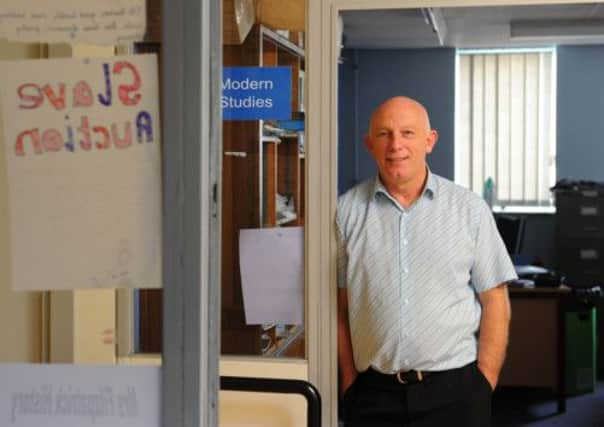Hugh Reilly: Lowest expectations for new Highers


More embarrassing, however, was the humiliation of forward roll practice. For most lads, tumbling one’s wilkies was a straightforward affair. However, fat boys struggled to contort their overnourished bodies into the required shape, their forward progress resembling that of a buckled coin leaving a roll-a-penny arcade game.
Until the mid-Eighties, conventional thinking in PE circles was that the forward roll was a simple pass/fail gymnastic manoeuvre. But with the implementation of Standard Grade, what constituted an acceptable forward roll had to be revisited. Falling over in a heap secured a Foundation award. Having a good pre-tumble address position and tucked-in arms was sufficient to achieve a General grade. Only the lithest lad, who could propel himself forward and spring up like a German-engineered jack-in-the-box, had any hopes of a Credit award.
Advertisement
Hide AdAdvertisement
Hide AdSadly, Standard Grade has gone the way of Portsmouth shipyards and been replaced by Curriculum for Excellence (CfE). The birth of CfE has endured complications. For example, its parents, the Scottish Labour-Lib-Dem government of 2004, which conceived education’s bastard child, have largely disowned their baby. Its adopted dad, the SNP, is taking all the flak for the stumbling first steps of implementation. Last week, teachers’ leaders and councils warned that the new Highers may be delayed as a consequence of “shambolic” preparations that have hampered the roll-out of the Nationals (the exams that replaced Standard Grade).
Holding back the new Highers would appear to be a sensible course of action. I disagree with those who say this would be embarrassing for education secretary Mike Russell; clearly, these innocents have not seen the minister’s vanity video played at college graduation ceremonies.
In time-honoured tradition, the latest educational wheeze has been handled with all the nifty footwork of a one-legged tap-dancer. I recall that months before Standard Grade was unveiled, the project was blacked by the EIS; that the initiative saw the light of day was largely due to sterling efforts of union-busting schoolmasters, who helped ensure classroom materials were available to classroom chalkies.
In the Nineties, embedding modules into the secondary school examination system made the Charge of the Light Brigade seem the result of meticulous planning. Into this particular faddish valley of death rode dominies armed with three-page descriptors of what the authorities would like to see happening in the classroom. It was every man for himself and a welcome fillip for the ailing wheel-reinventing industry. Freestyle teaching never really caught on, perhaps because teachers were the final arbiter of what constituted a pass. Failing a candidate could be the catalyst for an intrusive management investigation into one’s teaching ability. Flicking a tick avoided unnecessary angst – who, after all, has ever heard of a kid complaining that he has passed a test? Only when the currency of a module certificate had sunk lower than an Edinburgh Festival flyer for the UCLA barbershop quartet did those who run our abject system finally cry “uncle”.
Of course, the most momentous debacle was the introduction of Higher Still in 2000, a building block for the careers of those who dreamt up this farrago in a smoke-filled room. When the embers of the reefers had finally died, the experts emerged clutching the so-called Intermediate Exam, a national qualification that would be the envy of Equatorial Guinea. It would be a stepping stone to Highers for thousands. Unfortunately, these stepping stones turned out to be minefields. This came as no surprise to old salts such as yours truly – for me, the miracle of “progression through the subject” had been as credible as Christ-the-Caterer providing seafood and bakery products for 5,000 in The Great Biblical Bake-off.
Like politics, education is the art of the possible. With so many schools and individual departments ill-prepared for the new Highers, a pragmatic solution will be found to ease worried minds. Should the government obstinately decide to stay the course, heads will roll.